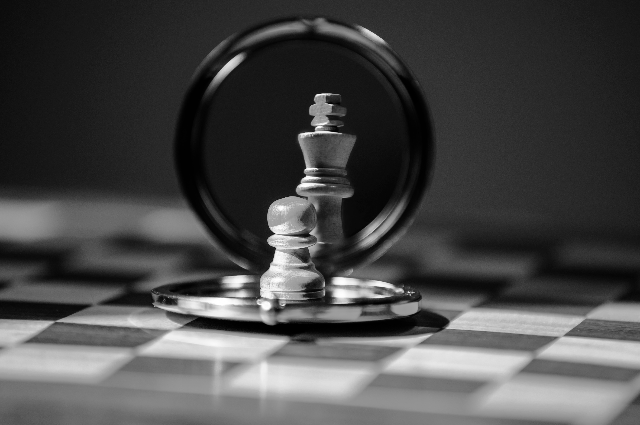
Introduction:
Yet every sport demands more or less smartness in the player, Chess undeniably is the most strategic sport. Chess is played between two players and on a Chessboard of 64 squares alternately colored black and white. There are total 32 pieces on the board (16 of each player) representing the army of the players. Queen is considered the most powerful among the pieces and pawn, the least. There are other pieces such as knights and rooks but the win relies on the king only. Once the king is dead the game gets over. There are certain predefined rules for every piece and both players should have to follow that rules. Chess, however, is unpredictable and neither of the players can guess the next move of the opponent and that’s what makes this sport interesting. Therefore one needs to be smart enough to predict the next move of the opponent and if he's not then it can be developed with time and practice for sure.
History and background in brief:
Chess is believed to be originated from the ancient Indian game chaturanga in the 7th century CE. It later got the influence of Persian and Arabian countries. The present form of Chess evolved with the influence of southern Europe around 1500 CE. The second half of the 19th century witnessed the growing popularity of this sport and Chess tournaments began to be organized. In 1886 the first world Chess Championship was organized officially. The 20th century recorded enormous growing interest of people in this sport and so World Chess Federation (FIDE) was established. The defeat of the then world Chess champion Garry Kasparov by an IBM supercomputer in 1997, began the era of computerized Chess analysis and programmed Chess games. Developments in the 21st century also encouraged online Chess games and programs that were more efficient than a human player.
Great personalities and Chess:
There have been many great personalities that mentioned the importance of playing Chess and how this sport helped them in their respective lives.
- Charlie Chaplin, one of the greatest comedians and actors also mentioned the importance of playing Chess in his autobiography entitled My Autobiography.
- Will Smith, one of the finest actors the world has ever witnessed, also in one of his interviews mentioned how Chess taught him about the arrogance of power and how much he love this sport.
- Bill Gates and warren buffets are among the top successful businessmen we know so far and they too like to play Chess quite often.
- Leonardo di Carpio, Kobe Bryant, and Albert Einstein are some very famous personalities that support the positive side of this sport and enjoy playing it.
What Chess teaches you about life?
- It encourages you to approach the problem in a very logical way that most of the time ends up giving you the logical satisfying answer.
- It teaches you the importance of having a strategy in life. Be it Chess or life, if you’re playing your every move blindly then there are handsome chances of you losing the game. Having a strategy helps you plan your next move and that motivates you to not stop at any problem rather to move on.
- It also encourages you to have another plan ready in case the original doesn't work. Sometimes things don’t work out the way we thought but that doesn’t mean to stop at that point and overthink on that. Thus, in life which is as unpredictable as Chess, you have to have your Plan B and sometimes even Plan C ready.
- It tells you the importance of making small sacrifices in order to achieve bigger goals. We often set certain goals in our lives but when it comes to make a sacrifice we hesitate. Say for example your goal is to lose your excess belly fat and you know in order to do that you need to make a sacrifice of junk food yet you can’t resist yourself when you come across any restaurant.
- Apart from the predefined rules of Chess, it is necessary to be creative in your actions for your strategy to work. It develops creativity in you that makes you think out of the box when the conventional rules don’t work out well.
- It makes you listen to the mind, not the heart. Often in Chess, we come across certain moments where we think the game is going our way but then in excitement, we do something that later proves to be fatal for us. Similarly in life before making any decision in excitement or anger we must have to think twice.
- Patience is the next biggest thing that Chess teaches us. There’s a rule in Chess that if the pawn manages to reach the opposite box, that is of the opponent's, then it can turn into the queen, which is the most powerful piece on the board. We need to move forward in life without losing patience. There may be difficulties now but the greatest things often take time.
Personal views:
I’ve been playing Chess for over 6 years and by far I came to realize that Chess actually builds your mental strength and actually that's what makes you smart. We describe a smart person as the one who always makes the right choices, who constantly manages to achieve his goals, and who never gets distracted from his actual path. Chess is a game of intense focus and patience and playing it regularly helped me implement these values in my daily life too. Playing Chess can improve one's decision-making abilities. So if you are someone who often faces difficulties while making choices and decisions, I suggest you to give it a try.
